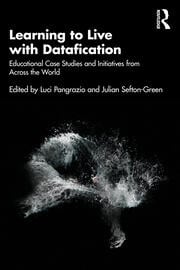I am just beginning a new three year project funded by the Wallace Foundation in the US.
The key aim of this study is to explore the long-term effects of participating in out-of-school (OST) arts education programs serving young people from marginalized communities. The project will delve into the life experiences of people who have participated in OST arts programs to determine how they perceive their participation affected their lives over the long-term. We will examine the potential shaping force of OST programs on identity formation and its influences on lifecourse trajectories that might derive from participation in non-formal arts education. By doing so, we will also shed light on the capacity of creative communities of practice and OST programs, in particular, to impact the life experiences of marginalized youth.
The rationale for the project is that although Education policy set by federal, state, and local agencies throughout the U.S. Australia and the UK promotes the value and need for creativity, critical thinking and problem-solving skills, yet opportunities for rich learning experiences that promote agency and a sense of belonging in relation to normative institutions are subject to racial and class divisions. Research that examines the ways in which a broad range of life-shaping capacities develop outside formal school settings can provide insight into the influence OST programs have, increasing recognition of their value and the possibilities for enhancing, expanding, and committing funding to OST arts education.
The initiative will theorize and capture potential long-term outcomes of OST arts programs and then use the findings and implications to influence ongoing and future design, implementation, and evaluation of OST arts programs. This approach will challenge deficit or remedial discourses by reevaluating the educational status of the developmental processes and supportive personal relationships that many staff in this sector value as consequential outcomes, but which are rarely documented as such. The focus on capturing perceived impact over the long-term will be an ambitious and original contribution to the sector.
This project will first, derive narrative accounts of long-term impact from people who attended after-school arts -based programs at least 10 years ago. These accounts will be analyzed thematically and conceptually, and the findings reviewed and validated by three categories of stakeholders: the participants in the study themselves, program-based practitioners, and other stakeholders, including our technical advisory group. In the second phase, findings from these accounts and their subsequent validation will then be used for practical application. It is expected that program leaders, policy makers, researchers and funders will be able to use these findings in the support, design, implementation, improvement, and extension of programs to further test and refine strategies for long-term impacts of considerable social import. A potential third phase (not currently funded) could expand these strategies at scale through research-practice partnerships based on our findings.
I will be working with colleagues from the University of California, Irvine, the University of Kentucky and Parsons School of design, new school New York. This project builds on previous publications examining out-of-school learning and the project YouthSites, (a history of the political economy of after-school learning organisations in London, Vancouver and Toronto).
I will write more here project unfolds

